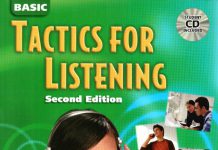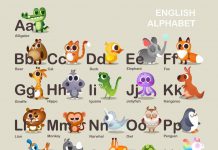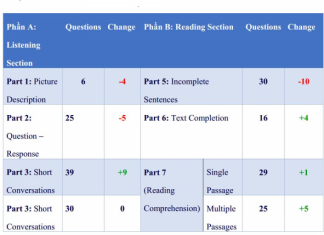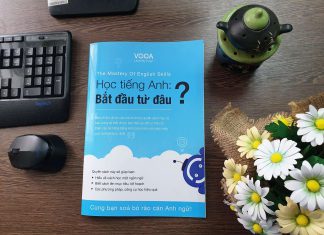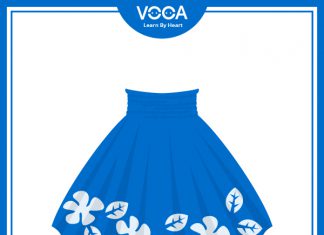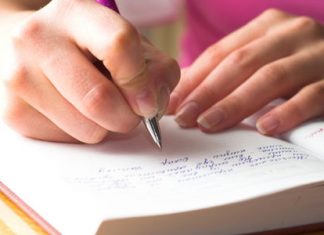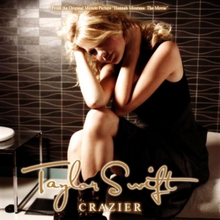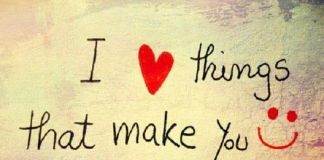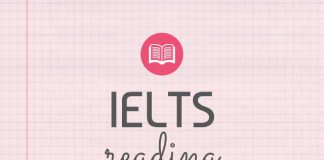Trong Tiếng anh có nhiều cách để diễn tả một thói quen, như: used to, be used to và get used to và mỗi cách lại được sử dụng trong một trường hợp khác nhau, với nét nghĩa khác nhau. Vậy làm thế nào để phân biệt và sử dụng used to, be used to và get used to đúng đây??? Bài viết này sẽ mang đến câu trả lời cho các bạn.
Để phân biệt 3 cụm “used to”, “be used to” và “get used to” chúng ta hãy cùng tìm hiểu cách dùng của từng cụm riêng lẻ nhé.
1. Be used to: đã quen với
Be used to + Ving hoặc cụm danh từ (trong cấu trúc này, used là 1 tính từ và to là 1 giới từ).
You are used to doing something (Nghĩa là bạn đã từng làm việc gì đó rất nhiều lần hoặc đã có kinh nghiệm với việc đó rồi, vì vậy nó không còn lạ lẫm, mới lạ hay khó khăn gì với bạn nữa).
VD:– I am used to getting up early in the morning.
Tôi đã quen với việc dậy sớm vào buổi sáng.
– He didn’t complain about the noise next door. He was used to it.
Anh ta không than phiền về tiếng ồn bên nhà hàng xóm nữa. Anh ta đã quen với nó rồi.
Nghĩa ngược lại của be used to là be NOT used to: không quen với, chưa quen với
VD: – I am not used to the new system in the factory yet.
Tôi vẫn chưa quen với hệ thống mới ở nhà máy.
2. Get used to: dần quen với used to, be used to và get used to
Get used to Ving hoặc cụm danh từ (trong cấu trúc này, used là 1 tính từ và to là 1 giới từ)
You get used to something (Nghĩa là bạn đang trở nên quen với việc đó. Đây là một quá trình của việc dần trở nên quen với việc gì đó).
VD: used to, be used to và get used to
– I got used to getting up early in the morning.
Tôi đã quen dần với việc dậy sớm buổi sáng.
– After a while he didn’t mind the noise in the office, he got used to it.
Sau một thời gian không để ý đến tiếng ồn trong văn phòng thì anh ta quen dần với nó.
3. Used to: đã từng, từng
Used to + verb chỉ một thói quen hay một tình trạng ở quá khứ. Nó thường chỉ được sử dụng ở quá khứ đơn.
a. Thói quen trong quá khứ:
You used to do something, nghĩa là bạn đã làm việc đó trong 1 khoảng thời gian ở quá khứ, nhưng bạn không còn làm việc đó nữa.
VD: used to, be used to và get used to
– We used to live there when I was a child.
Chúng tôi đã từng sống ở đó khi tôi còn là một đứa trẻ.
– I used to walk to work when I was younger.
Tôi từng hay đi bộ đến công ty khi tôi còn trẻ.
b. Tình trạng/ trạng thái trong quá khứ:
Used to còn thể hiện tình trạng trong quá khứ nhưng không còn tồn tại nữa được thể hiện bằng những động từ biểu hiện trạng thái sau: have, believe, know và like.
VD: used to, be used to và get used to
– I used to like The Beatles but now I never listen to them.
Tôi đã từng thích nhóm The Beatles nhưng bây giờ tôi không còn nghe nhạc của họ nữa.
– He used to have long hair but nowadays his hair is very short
Anh ta đã từng để tóc dài nhưng dạo này anh ấy để tóc rất ngắn.
c. Dạng câu hỏi của Used to: Did(n’t) + subject + use to
VD: used to, be used to và get used to
Did he use to work in the office very late at night?
(Anh ta có thường hay làm việc trong văn phòng rất trễ vào buổi tối không?)
d. Dạng phủ định của Used to: Subject + didn’t + use to
VD: used to, be used to và get used to
– We didn’t use to be vegetarians.
Chúng tôi không từng là những người ăn chay.
– We didn’t use to get up early when we were children.
Chúng tôi không thường dậy sớm khi còn là những đứa trẻ.
“Used to”, “be used to” và “get used to” – phiên biệt như thế nào đây?
4. Bài tập luyện tập
Dưới đây là một số bài tập tự luyện các dùng used to, be used to và get used to. Hãy cùng ENG4 luyện tập nhé!
I. Fill in the blank with “use, used to, be used to, or be used for”.
1. I often………..this pen to write my lessons.
2. I…………………… love Ann but now she gets on my nerves.
3. There…………… be a tree in front of my house.
4. They……………… a computer to do the most complicated calculations.
5. These bricks…………………… building a new school.
6. That knife……………………. cut oranges.
7. American women……………… being independent.
8. Cheques and credit cards…………. storing wealth.
9. It took me a long time to…………wearing glasses.
10. Metal and paper…………………. making money.
II. Write a sentence for each of the following using used to or didn’t use to.
1. When Barbara was in Italy, she stayed with an Italian family.
2. I quite like drinking coffee in the morning, although I wasn’t keen on it when I was younger
3. We seem to have lost interest in our work.
4. I don’t mind travelling by train now.
5. I went to the church when I was a child.
6. Since we’ve lived in the countryside, we’ve been much happier.
7. Mr.Michael grew tulips but he doesn’t anymore.
8. I prefer listening to classical music now, although when I was young I couldn’t stand it.
9. My sister looked so fat when she returned from Paris.
III. Fill in the blank.
1. When I was a student, I used to (work)……in a bar.
2. I will never get used to (work)…….nights. I prefer working days
3. She isn’t used to (live)…..on her own. The house feels quite empty.
4. When I worked in the city, I used to (get up)…….really early.
5. Are you getting used to (live)……………in your new house yet?
6. We are not used to (live)……. in a cold climate. We’re used to a warm one.
7. I used to (be)……… a gardener. I’m not used to (sit)………….in an office all day.
8. Since I retired from my job, I can’t get used to (have)…………..nothing to do all day.
9. In my last job, I used to (wear)………….. a suit and tie. Now I wear jeans.
10. I was just getting used to (wear)……..glasses.
5. BÀI TẬP DẠNG QUIZ
Bài 1: (Bấm hoàn thành và kéo xuống câu cuối cùng để xem kết quả)
Results-
#1.
When I started to work here I needed a lot of help, but now I _____ all the work on my own.
used to do
am used to doing
get used to doing
#2.
He _____ several books a month, but he doesn’t have time any more.
was used to reading
got used to reading
used to read
#3.
We were surprised to see her driving – she _____ when we first met her.
got used to driving
didn’t use to drive
was used to driving
#4.
Don’t worry, it’s a simple program to use. You _____ using it in no time, I’m sure.
are used to
will get used to
used to
#5.
When I had to commute to work every day I _____ very early.
used to get up
used to getting up
use to get up
Bài 2: (Bấm hoàn thành và kéo xuống câu cuối cùng để xem kết quả)
Results-
#1.
I’m afraid I’ll never _____ in this place. I simply don’t like it and never will.
get used to living
used to live
got used to living
#2.
Whenever we came to Coventry we always _____ in the Central Hotel. We loved it.
got used to staying
used to stay
got used to stay
#3.
When Pete Smith was the head of our office, everything _____ well organized. Now it’s total chaos here.
got used to be
used to be
used to being
#4.
Mr Lazy was shocked when he joined our busy company because he _____ doing much work everyday.
wasn’t used to
didn’t use to
wasn’t use to
#5.
At first the employees didn’t like the new open-space office, but in the end they _____ it.
get used to
got used to
are used to







